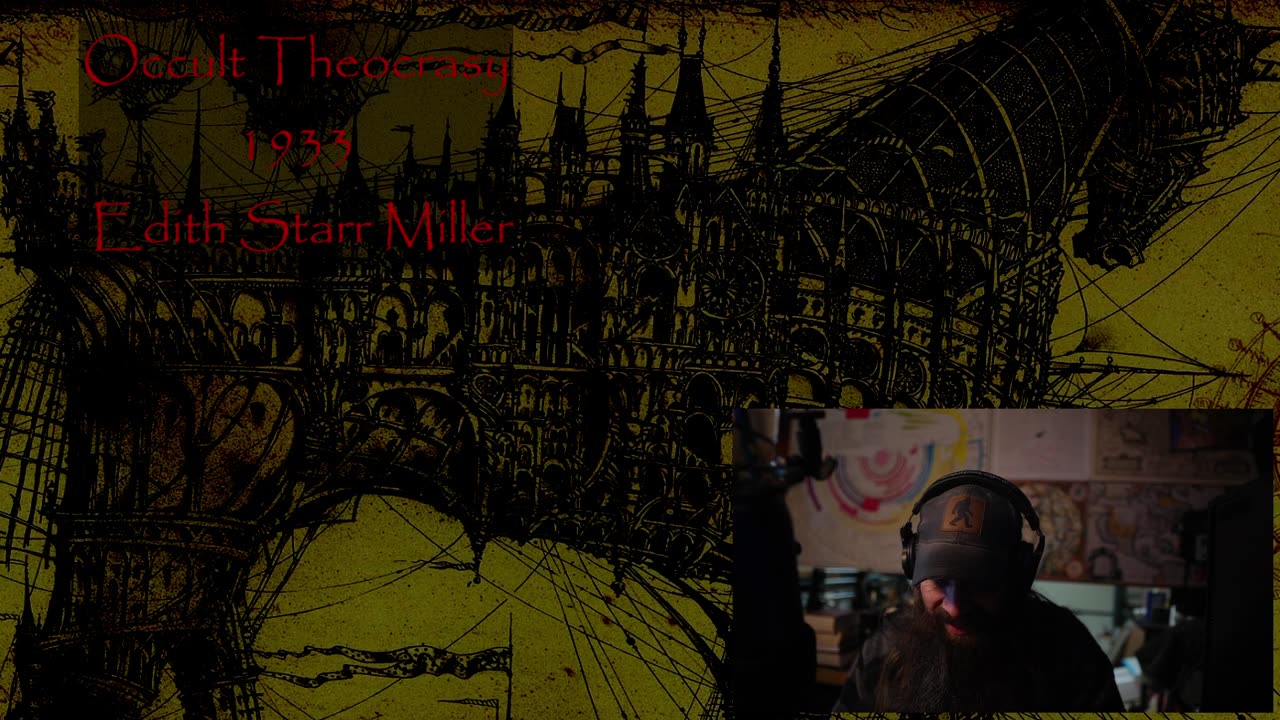Premium Only Content

Occult Theocrasy - Part II - Ch 35 - pg308
Occult Theocrasy - Part II - Ch 35 - pg308
This video delves into the history, structure, and influence of the Jesuit Order, founded in 1541. It examines the organization’s hierarchy, their relationship with the Pope, the controversy surrounding their actions, and their mission strategies, particularly in regions like India and China. The discussion includes insights into their secretive practices, internal governance, and the perception of their power as both a religious and political entity.
Key Points:
Historical Context of Jesuits
The Society of Jesus, commonly known as the Jesuits, was founded by Ignatius of Loyola in 1541 under Pope Paul III's approval. The video emphasizes the order’s anti-jesuit bias, providing a critical look at its historical details.
Organizational Hierarchy
The Jesuit Order comprises six ranks, only two of which, the professed of three and four vows, hold significant power. The General, akin to a commander-in-chief, exercises absolute authority over all members who owe blind obedience.
Allegiance to the Pope
Members take a fourth vow of special allegiance to the pope, pledging to follow his orders for missionary work, although the General holds the power to send or recall missionaries, illustrating the complex dynamics of authority within the order.
Controversial Practices and Allegations
Despite their claims of independence, the Jesuits have historically faced accusations of manipulation and secrecy, including their potential existence of clandestine ranks within their order, known as Jesuits of the short robe.
Relationship with the Papacy
The relationship between the Jesuits and the papacy has been complex, with the order often maintaining independence while cooperating when interests align. They historically distanced themselves from the Inquisition, and this portrayal continues to persist.
Influence in Missions
The video discusses the Jesuit missions, particularly in India and China, where they adapted Christianity to local customs, leading to significant conflicts with the papacy over practices deemed idolatrous.
Reformation and Resilience
Despite facing suppression, including the abolition of their order by the Pope in 1773, the Jesuits managed to survive and even thrive under the protection of influential political figures, demonstrating their resilience and adaptability.
Initiation Practices
Detailing secretive initiation rituals, the video describes elaborate and psychologically demanding ceremonies that new members undergo, showcasing the order's commitment to forming deeply loyal adherents.
-
 30:54
30:54
Cooking with Gruel
16 hours agoCooking with Matt and Ginger Gaetz
5381 -
 1:22:55
1:22:55
MTNTOUGH Fitness Lab
18 hours agoHomeland Security Pulls Us Off The Plane! Jaw-Dropping Moments from MTNTOUGH's 2024 Ibex Hunt
170 -
 1:05:30
1:05:30
Kyle Rittenhouse Presents: Tactically Inappropriate
12 hours agoHey Doge, Where's My Coin?
781 -
 4:44
4:44
America First Policy Institute
20 hours agoAmerica First Unfiltered: Trump’s Historic First Month – Real Wins for Real Americans! 🇺🇸 #news
35 -
 8:22
8:22
DropItLikeItsScott
1 day agoThis IS one of the Greatest AR's EVER! The Nemesis by Special Ops Tactical
1101 -
 2:42:30
2:42:30
TimcastIRL
10 hours agoKash Patel CONFIRMED, Deep State PANICS, Mitch McConnell To RETIRE w/ Kevin Smith | Timcast IRL
175K320 -
 1:04:47
1:04:47
Candace Show Podcast
14 hours agoBecoming Brigitte: The Epilogue
124K171 -
 3:43:51
3:43:51
Alex Zedra
9 hours agoLIVE! Come Play WoT with me!
48.6K12 -
 5:22:49
5:22:49
Drew Hernandez
17 hours agoDOGE EXPOSES $2 BILLION SCHEME LINKED TO STACEY ABRAMS?!
74.8K48 -
 1:27:59
1:27:59
Kim Iversen
12 hours agoRFK Jr Declares No More Cheetos on Welfare? | Yale Confirms Long Covid Is Actually Vaccine Injury!
110K128